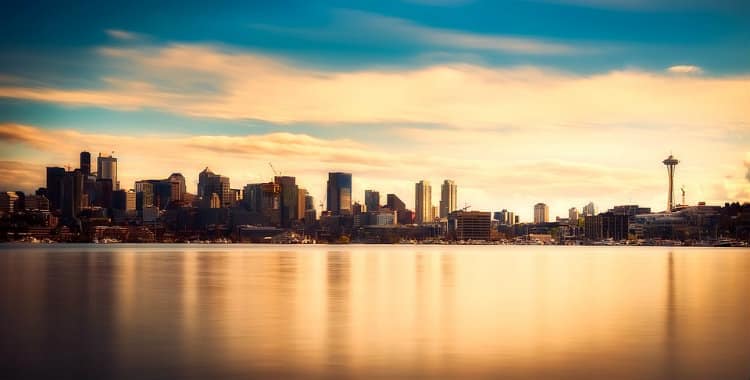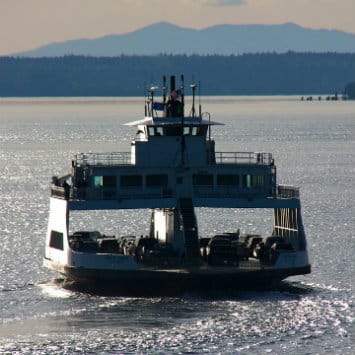If you or a loved one recently suffered a maritime or offshore injury in Washington, you may have many questions:
Contact us today for help protecting your rights after a maritime or offshore injury. Consultations are free and our experienced attorneys only work on contingency - if you don't win your claim, you'll owe no legal fees.
With a total of 75 ports spanning all four corners of the state, Washington has the largest locally controlled public port system in the world.
These facilities account for nearly 87 thousand total jobs throughout the state of Washington, including 7,590 workers who are directly involved in maritime or marine terminal operations. These employees are able to provide a stable living for their families, but maritime occupations also have a high risk of work-related injuries.
When a maritime, marine or offshore worker gets injured on the job, it’s important that he or she receives the benefits needed during recovery. Additionally, maritime workers covered under the Jones Act may have the option to sue their employers if some form of workplace negligence played a role in their injuries.
Unsure whether you qualify for a claim or personal injury lawsuit? Speak with an offshore accident lawyer today to learn more about the legal options at your disposal.
Find more information from our maritime injury lawyers here.


In order to seek damages under the Jones Act, you must meet the law’s definition of a “seaman”. Those who spend at least 30% of their work hours in activities related to the function of a vessel on navigable waters are covered under this Act. Examples include cargo ship crew members, ship maintenance and repair personnel, cruise ship employees, offshore oil rig workers, and several others.
These workers are guaranteed maintenance and cure benefits after an injury, which provide compensation for daily living expenses and medical bills. In offshore injuries that involve some form of negligence, the injured party may also seek additional damages in a lawsuit against their employer and/or the owner of the work vessel.
Workers who are not covered under this Act may include employees who primarily work from docks, harbors, piers, and other shore-side maritime facilities. Those who are not covered by the Jones Act may instead seek financial compensation through the Longshore and Harbor Workers’ Compensation Act. These claims do not consider negligence but do provide benefits like lost wages, medical expenses, vocational rehabilitation services, and death benefits for families of fatal accident victims.
Washington’s 75 ports import and export a wide range of cargoes. Some of the most important facilities in the state include:
The Port of Olympia is a full-service maritime facility, including a complete breakbulk/container yard, a US Customs bonded warehouse, an on-dock rail, and three modern, deepwater berths. This port is a major source of employment in the region, with a total of 4,397 direct, indirect, and induced jobs as of 2014.
The port handles about 45 million metric tons of breakbulk cargoes each year, mainly specializing in:
The Port of Seattle is one of the Pacific Northwest’s most important economic hubs. The port system is responsible for nearly 130 thousand direct jobs, and a total of over 216 thousand direct, indirect, and induced jobs. On average, these jobs generate $9.6 billion in personal income and $19.8 billion in business revenue per year. Seattle is also a popular location for cruise arrivals and departures, with nearly 871 thousand cruise passengers moving through the port in 2013.
The Port of Tacoma is another economic powerhouse in the region, accounting for over 12 thousand jobs directly related to marine cargo operations. In total, port operations generated nearly $3 billion in economic activity in 2014. The port has a wide range of maritime work facilities, including marine terminals and docks, cargo-handling equipment, on-dock rail service, and industrial properties such as warehouses.
Major exports at the Port of Tacoma include:
Major imports include:
After suffering a serious maritime or offshore work injury, it’s easy to feel uncertain about what to expect next. State-level land-based workers’ compensation claims are complex in their own right, but the complicated nature of maritime law makes recovering compensation even more difficult for maritime employees. In order to make sense of these complexities and deal with powerful and difficult insurance companies, many injured maritime workers require the assistance of an experienced offshore injury lawyer.
A knowledgeable lawyer can help you provide everything you need for a claim, establish how negligence may have caused your injury, represent you in court, and negotiate with insurance companies on your behalf. In virtually all offshore injury cases, a lawyer can help make sure you recover every penny of the financial compensation you’re entitled to.
To find out more about your rights and begin planning for your claim, contact one of our experienced maritime injury lawyers today.
See Related:

 info@legalherald.com
info@legalherald.com